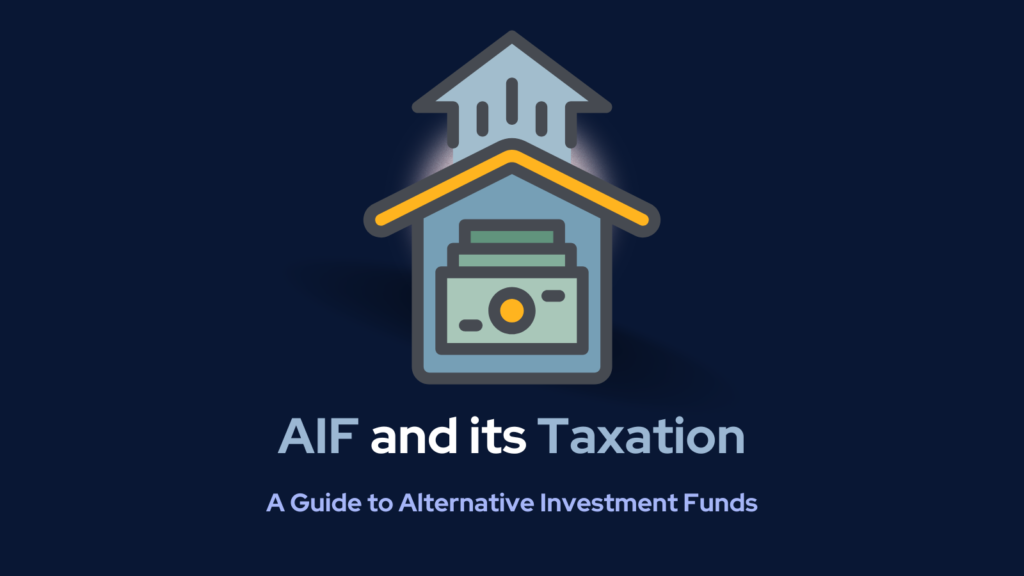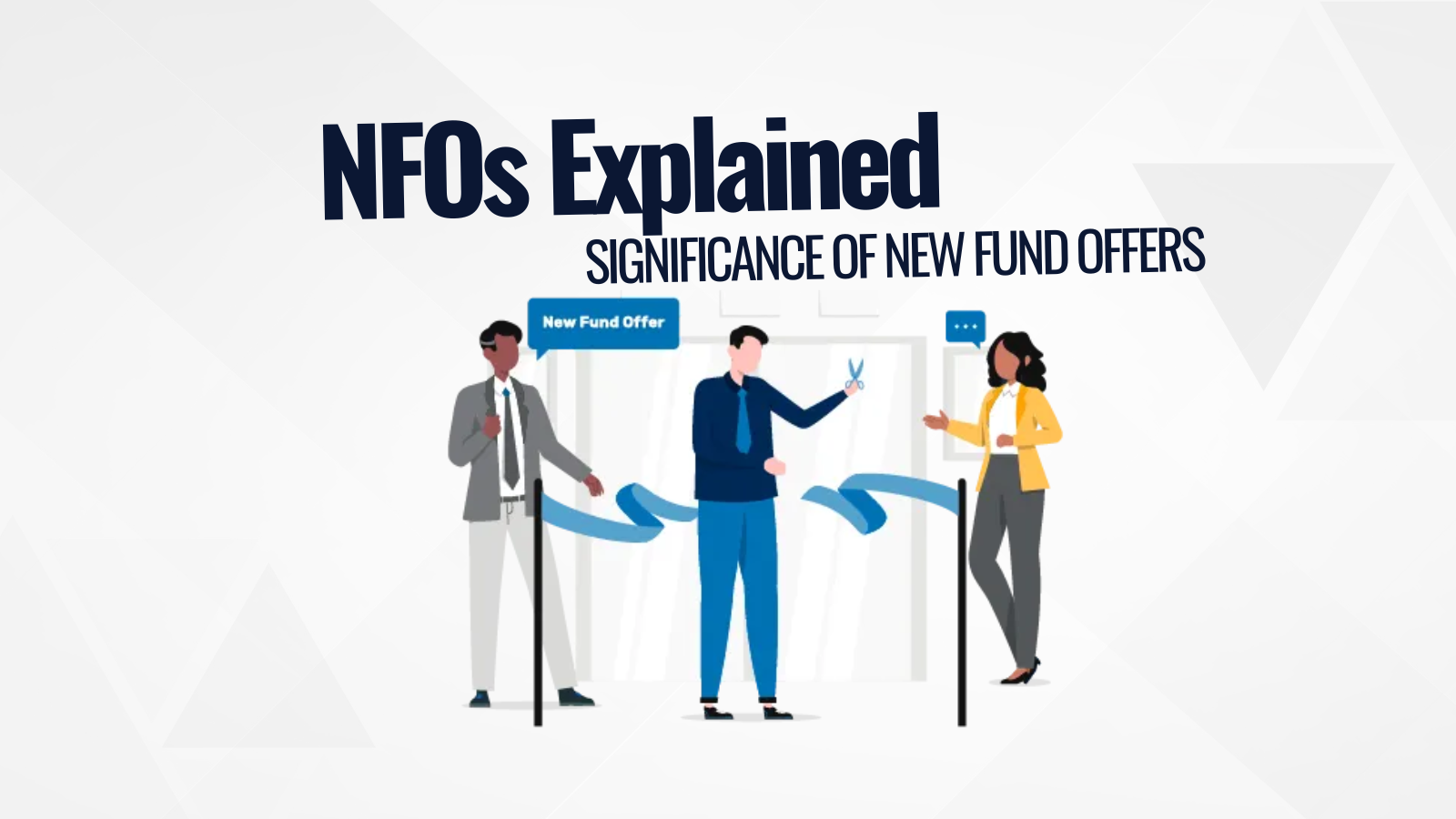- What is an Alternative Investment Fund(AIF)?
- Types of AIFs in India
- Who can invest in an AIF?
- Taxation of Alternative Investment Funds
The world of finance offers an abundance of investment opportunities, each catering to different risk tolerances and also return expectations. While traditional investments such as equities and bonds remain popular, the world of Alternative Investment Funds(AIF) has emerged as an appealing choice for individuals looking for diversity and perhaps higher returns. But what are AIFs, and how do they work?
What is an Alternative Investment Fund?
An Alternative Investment Fund (AIF) is a pooled investment entity that uses alternative investment strategies as well as assets to generate profits. Furthermore, AIFs operate outside of traditional investing frameworks, allowing investors to access a diverse range of assets, including private equity, hedge funds, real estate, commodities, and more. Also, the Securities and Exchange Board of India (SEBI) regulates Alternative Investment Funds(AIF) in India and plays an important role in diversifying investment portfolios.
Types of AIFs in India:
Category I AIFs:
- Focuses on startups, early-stage ventures, social ventures, small and medium-sized enterprises (SMEs), as well as on infrastructure.
- Encourage economic growth as well as employment generation.
These include:
- Venture Capital Fund (VCF)
- Angel Funds
- Infrastructure Funds
- Social Venture Funds
Category II AIFs:
- Invest in debt or equity of companies for their growth and also their expansion.
- Don't include sectors prohibited by SEBI.
These include:
- Fund of Funds
- Debt Funds
- Private Equity Funds
Category III AIFs:
- Employ diverse trading strategies, including derivatives as well as leverage.
- Aim for short-term returns, and also often on adopting a more aggressive approach.
These include:
- Hedge Funds
- Private Investment in Public Equity Funds
Who can invest in an AIF?
AIFs are designed for sophisticated as well as high-net-worth investors(HNIs), including:
- Individuals: High-net-worth individuals seeking diversification.
- Institutions: Banks, insurance companies, pension funds, as well as other institutional investors.
- Family Offices: Managing the wealth of affluent families.
- Foreign Investors: Subject to regulatory approvals.
Why invest in AIFs?
- Diversification: AIFs offer exposure to a broad spectrum of asset classes, reducing overall portfolio risk.
- Higher Returns: AIFs often target higher returns compared to traditional investments, compensating for the increased risk.
- Innovation: AIFs provide access to innovative, niche and unique investment opportunities that may not be available through conventional channels and also through traditional routes.
- Professional Management: AIFs are managed by skilled as well as experienced fund managers with expertise in specific asset classes, further enhancing the potential for better returns.
Taxation of Alternative Investment Funds
Each category of AIF is a distinct investment vehicle, hence it is taxed differently. As a result, it is critical for investors to understand the income tax implications of AIFs. Income (other than business income) from Categories I and II is taxed in the investor's hands at their applicable tax rate, whereas income from Category III is tax-free in the investor's hands because Category III AIFs have not been granted pass-through status, and thus the fund bears the obligation of paying the tax. Firstly, Let's take a closer look at the tax regulations around AIFs:
Category I and II AIFs
The Finance Act of 2015 established a special taxing framework in which Category I as well as Category II AIFs were granted pass-through status. Pass-through indicates that the money that the fund earns will be taxed in the investor's hands rather than at the fund level. In this case, the investor is responsible for paying taxes on the investment income. Additionally, The fund is exempt from all tax requirements on investment income and capital gains; but, if the fund classifies its revenue as business income, will be taxed in the fund's hands. Furthermore, The table below can help you understand the tax structure better.
| Nature Income of the Fund | Tax Liability |
| Capital gains or any income other than business income | The fund is not liable for tax. Further, The burden to pay tax is on the investor. |
| Business income | Taxed in the hand of the fund |
Taxation for Category I and Category II
Long-Term Capital Gains (LTCG): Investments in Category I and Category II AIFs held for over a year are considered long-term capital gains and taxed at the corresponding rate. Long-term capital gains on listed shares are normally taxed at a 10% rate, while unlisted shares and also other assets are taxed at 20%.
Short-Term Capital Gains (STCG): Short-term capital gains from Category I and also Category II AIFs are typically taxed at a 15% tax rate.
Dividend Income: AIF dividends are taxed based on the investor's tax slab.
Interest Income: Any interest income produced through Category I as well as Category II AIFs is taxable based on the investor's tax bracket.
Firstly, The above rates are set under the Income Tax Act. Although, It may be mended by rates agreed upon by the two nations under Double Taxation Avoidance Agreements (DTAAs), if such provisions benefit the investor. Furthermore, if any income other than business income is distributed by Category I and II AIF to its investors, it will be subject to a 10% withholding tax for resident investors and non-resident investors, the withholding tax rates will be as provided under the Act or the DTAA, whichever is more beneficial.
Category III AIFs:
This category includes all income earned by the fund, whether it is investment income, capital gains, or the company income. In fact, The pass-through tax regime has not been extended to Category III AIFs. Moreover, The AIF pays tax on four sources of income, each at a different rate. Further, The following is a summary of taxation applicable to Category III AIFs:
| Type of Income | Tax Rate |
| Long-term Capital Gain | 10% |
| Short-term Capital Gain | 15% |
| Dividend Income | 30% |
| Interest Income | 30% |
| Business Income | 30% |
Increasing Importance of AIF in your Portfolios
As financial markets evolve, Alternative Investment Funds, accordingly, have become an important component of modern investment portfolios. Subsequently, With their various investment methods, regulatory monitoring, and potential for significant profits, AIFs allow investors to venture outside traditional asset classes. Further, Understanding the various forms, eligibility criteria, and taxes implications is critical for making sound investment decisions in the ever-changing landscape of alternative investments.
Drop us your query at – info@pawealth.in or Visit pawealth.in
Disclaimer: The report only represents the personal opinions as well as views of the author. Also, No part of the report should be considered a recommendation for buying/selling any stock. Thus, the report & references mentioned are only for the information of the readers about the industry stated.
Most successful stock advisors in India | Ludhiana Stock Market Tips | Stock Market Experts in Ludhiana | Top stock advisors in India | Best Stock Advisors in Gurugram | Investment Consultants in Ludhiana | Top Stock Brokers in Gurugram and also Best stock advisors in India | Ludhiana Stock Advisors SEBI | Stock Consultants in Ludhiana | AMFI registered distributor | Amfi registered mutual fund | Be a mutual fund distributor | Top stock advisors in India | Top stock advisory services in India | Best Stock Advisors in Bangalore



